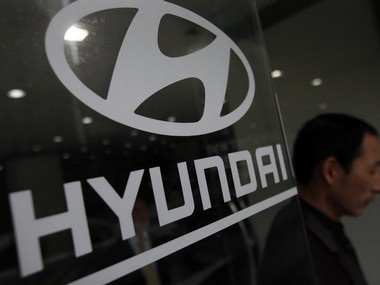**Hyundai Motor** Co said on 17 August it will launch a long-range electric vehicle with a driving range of 500 km (311 miles) per charge after 2021, seeking to address investor concerns that it is lagging rivals in the green car race.
[caption id=“attachment_3020190” align=“alignleft” width=“380”] Reuters[/caption]
The automaker and affiliate Kia Motors Corp, which together rank fifth in global vehicle sales, also said they are planning 31 eco-friendly models by 2020, up from a previously flagged 28.
The new additions include three plug-in hybrid vehicles, which come on top of eight battery-powered cars and two fuel-cell vehicles.
Battery-powered cars offered by the likes of **Tesla** are gaining traction faster than fuel cell vehicles backed by Hyundai and Toyota Motor Corp.
Last year, Hyundai launched its first mass-market pure electric car IONIQ, but the vehicle’s per-charge driving range is much shorter than offerings from Tesla and GM.
The automaker said will introduce an electric version of its Kona small sport utility vehicle (SUV) with a driving range of 390 km in the first half of next year.
It also confirmed a Reuters report that it is developing its first dedicated electric vehicle platform, which will allow the company to produce multiple models with longer driving ranges.
Hyundai unveiled a near production version of its new fuel cell SUV with a driving range of more than 800 km per charge under European standards, nearly double the 415 km for its current Tucson fuel cell SUV.
The mid-sized SUV will be launched in Korea early next year, followed by US and European markets. A fuel cell electric bus is slated to be unveiled late this year, while a sedan-type fuel cell car is also planned.


)



